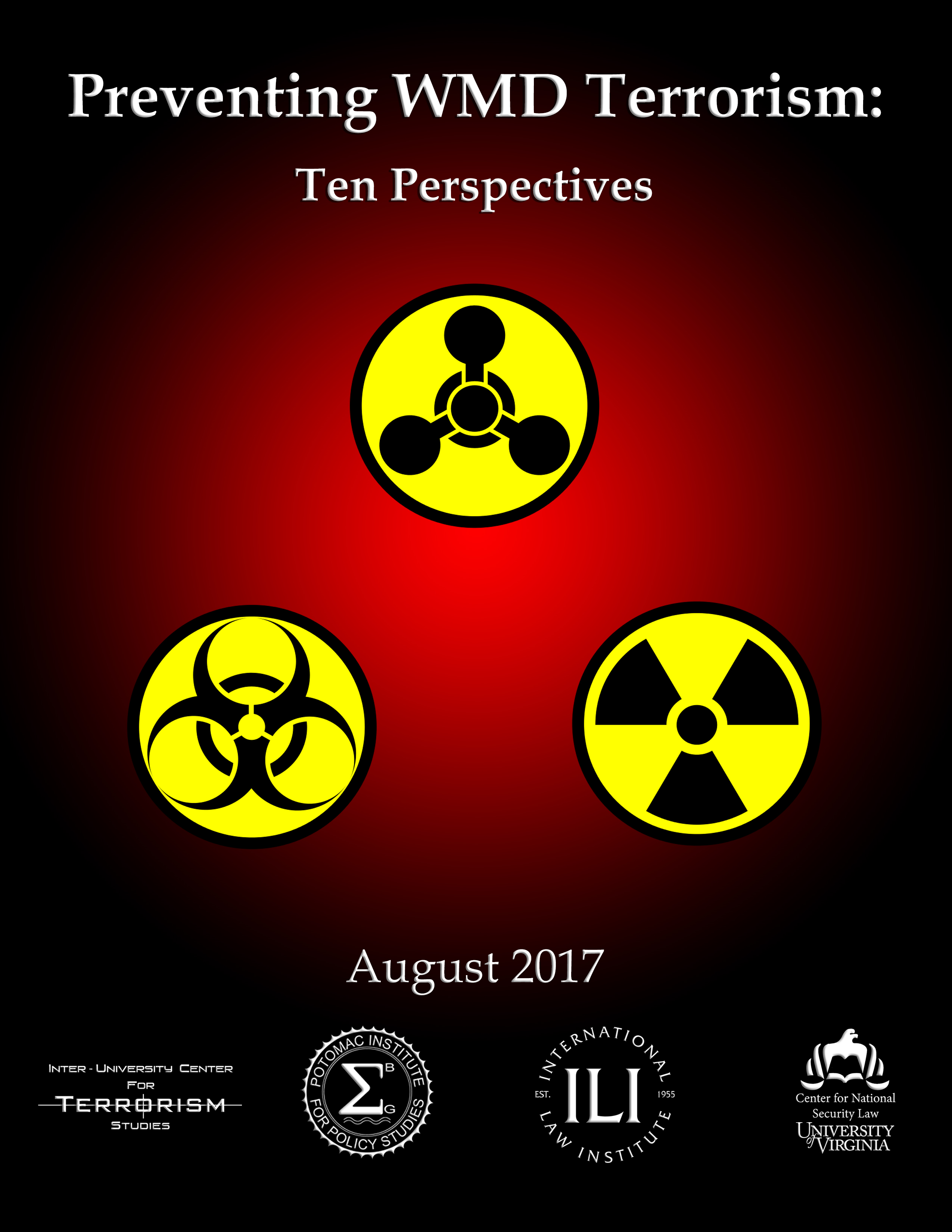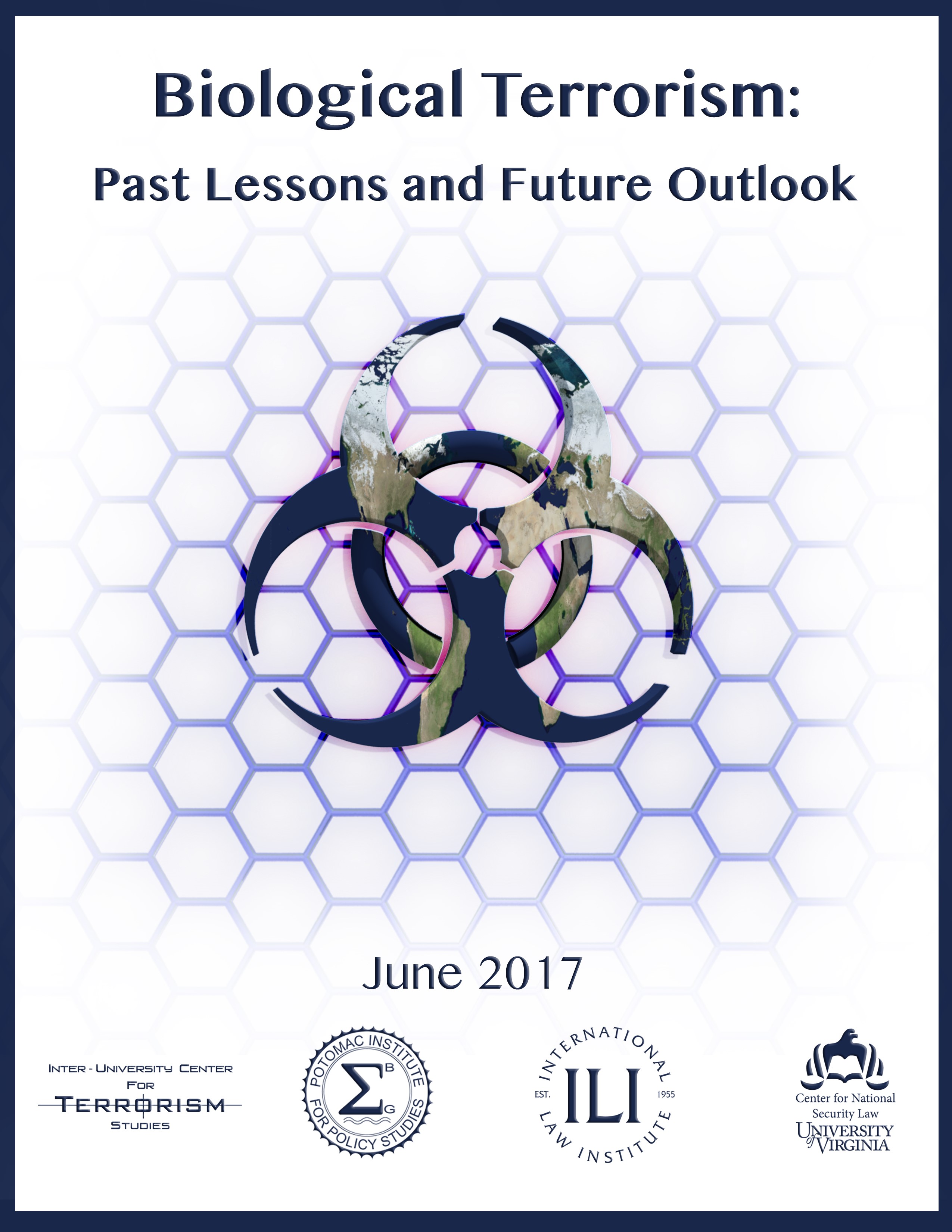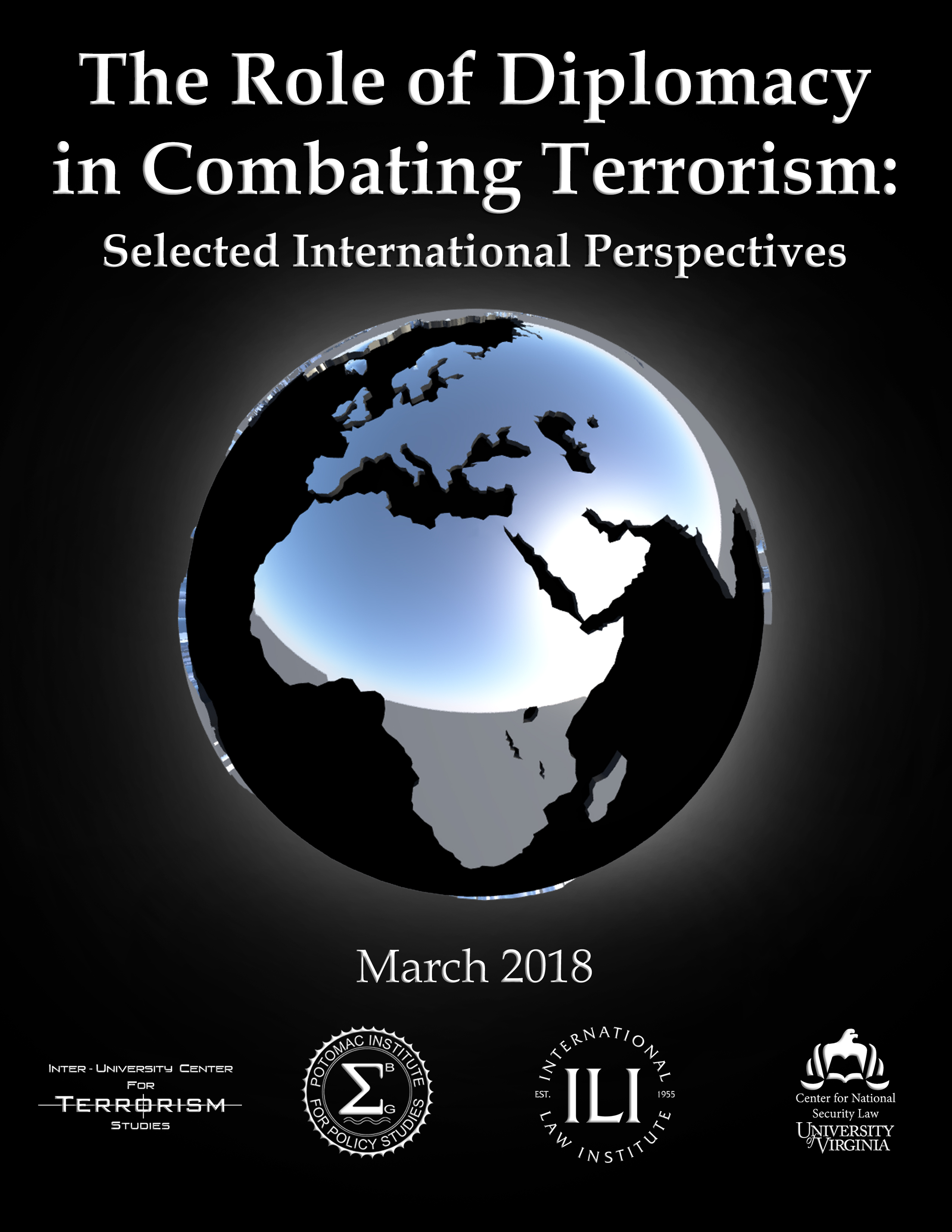 From the dawn of history “diplomacy” has been utilized as a permanent mode of statecraft in the struggle for power within and among nations during peace and war.The purpose of this March 2018 report on “The Role of Diplomacy in Combating Terrorism: Selected International Perspectives” is to highlight insights from foreign diplomats on threats and challenges to officials and their missions, analysis of statecraft, and “best practices” responses to radicalization and violence.
From the dawn of history “diplomacy” has been utilized as a permanent mode of statecraft in the struggle for power within and among nations during peace and war.The purpose of this March 2018 report on “The Role of Diplomacy in Combating Terrorism: Selected International Perspectives” is to highlight insights from foreign diplomats on threats and challenges to officials and their missions, analysis of statecraft, and “best practices” responses to radicalization and violence.
Download the report here



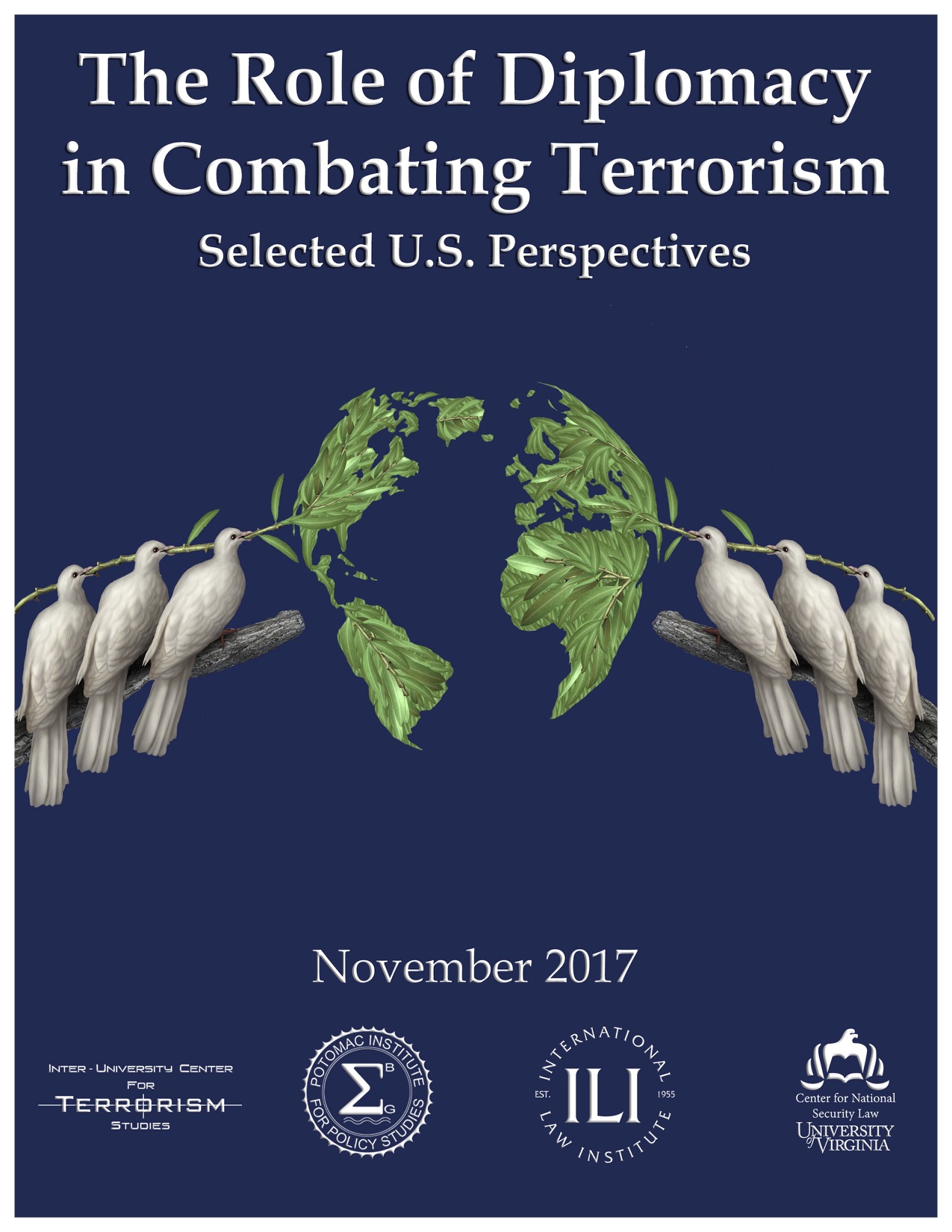 In view of the multiple security challenges to international peace and order posed by the intensification of terrorist attacks for over the past half-century, governmental, intergovernmental, and nongovernmental bodies have developed tactical and strategic responses on national, regional, and global levels. The role of diplomacy is, indeed, a critical element in the evolving process. The purpose of this report on “The Role of Diplomacy in Combating Terrorism: Selected U.S. Perspectives” to focus specifically on the role of diplomacy in combating terrorism relevant to experiences of the United States and their implications internationally. The key question is whether the U.S. and the international community is capable of crafting adequate responses to terrorism, diffusing expanding conflicts regionally and inter-regionally, engaging in constructive peace processes, and striking a delicate balance between security measures and democratic value systems.
In view of the multiple security challenges to international peace and order posed by the intensification of terrorist attacks for over the past half-century, governmental, intergovernmental, and nongovernmental bodies have developed tactical and strategic responses on national, regional, and global levels. The role of diplomacy is, indeed, a critical element in the evolving process. The purpose of this report on “The Role of Diplomacy in Combating Terrorism: Selected U.S. Perspectives” to focus specifically on the role of diplomacy in combating terrorism relevant to experiences of the United States and their implications internationally. The key question is whether the U.S. and the international community is capable of crafting adequate responses to terrorism, diffusing expanding conflicts regionally and inter-regionally, engaging in constructive peace processes, and striking a delicate balance between security measures and democratic value systems.
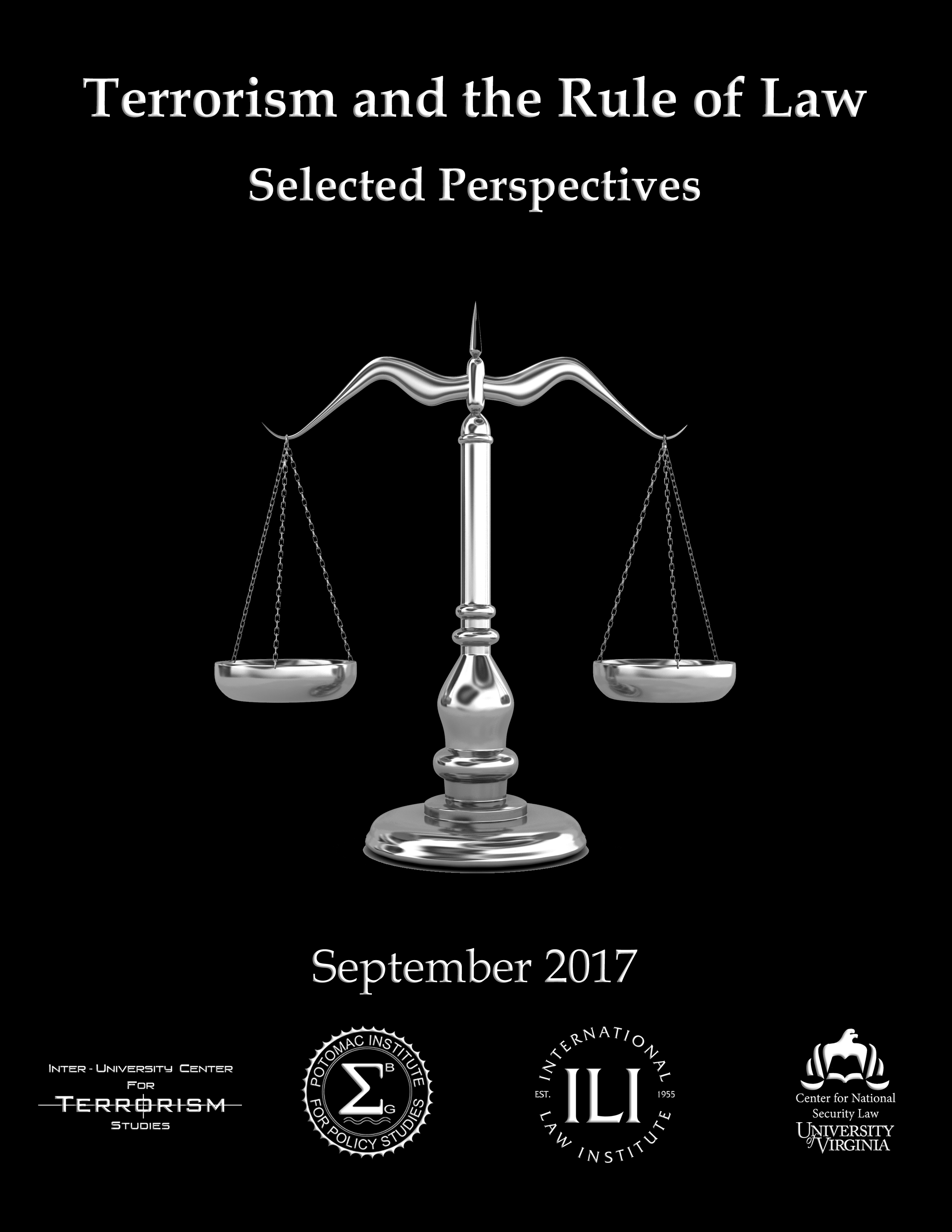 Ensuring the safety and interests of citizens at home and abroad continues to be every government’s paramount responsibility. The purpose of this report is to focus on the interface between terrorism and the rule of law. The key question is whether nations can strike a balance between security concerns and protecting civil liberties and constitutional order.
Ensuring the safety and interests of citizens at home and abroad continues to be every government’s paramount responsibility. The purpose of this report is to focus on the interface between terrorism and the rule of law. The key question is whether nations can strike a balance between security concerns and protecting civil liberties and constitutional order.
